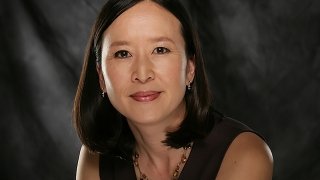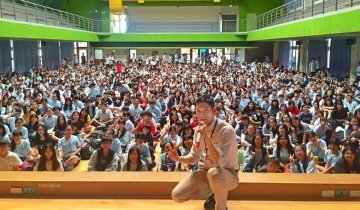An expert in higher education administration, Tambascia will represent nearly 5,000 full-time faculty members
Tracy Poon Tambascia, a professor of clinical education at the USC Rossier School of Education, has been elected president of the USC Academic Senate.
The senate represents the entire USC faculty—numbering more than 4,700—and gives voice to faculty within the University’s shared governance model. Working with the university administration, the senate is responsible for advancing faculty rights, interests and responsibilities.
“It's an honor to have Tracy at USC Rossier,” said Pedro A. Noguera, the Emery Stoops and Joyce King Stoops Dean of USC Rossier, “and in crucial higher education leadership roles at USC and beyond.”
An expert in higher education administration and student affairs, Tambascia will be the first woman of color to hold the position.
She brings extensive leadership experience to the role. She’s currently vice chair for the Western Association of Schools and Colleges' Senior College and University Commission. Within USC, she’s co-chaired the provost’s council on diversity, equity and inclusion, while also co-leading committees that support research, teaching, practitioner and clinical-track (RTPC) faculty, and teaching and academic programs.
“I am humbled to be elected to serve in this role by the USC faculty,” Tambascia said. “This is ‘service’ in the truest form of the word—faculty volunteering their time to give back to peers and to the university.”
The presidency requires using a number of skills, Tambascia said, citing the ability to prioritize, to listen carefully, knowing how to “remove the noise” in a complex situation, how to organize time and resources, and “most importantly, bringing a sense of empathy to the role.” She also emphasized using a team-based approach to solving problems, emphasizing the executive board and faculty senators similarly elected to represent the faculty.
“Communication is essential, candor helps build trust, if it seems complicated is probably is,” Tambascia said, pointing to lessons she’s learned from her other experiences. “And focusing on what’s important will bring better results than entertaining a dozen possibilities.”





